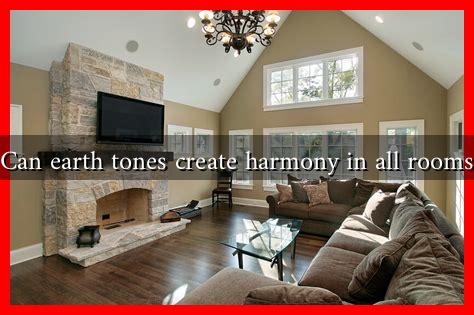-
Table of Contents
Can Earth Tones Create Harmony in All Rooms?
In the world of interior design, color plays a pivotal role in shaping the atmosphere and mood of a space. Among the myriad of color palettes available, earth tones have emerged as a popular choice for creating harmony in various rooms. This article explores the concept of earth tones, their psychological effects, and how they can be effectively utilized in different spaces to foster a sense of tranquility and balance.
Understanding Earth Tones
Earth tones are colors that are inspired by the natural world, including shades of brown, green, beige, terracotta, and muted yellows. These colors are often associated with the earth, wood, and stone, evoking a sense of warmth and comfort. The appeal of earth tones lies in their versatility and ability to blend seamlessly with various design styles.
The Psychological Impact of Earth Tones
Colors have a profound impact on our emotions and behaviors. Earth tones, in particular, are known for their calming and grounding effects. According to a study published in the journal *Color Research and Application*, warm colors like browns and greens can reduce stress and promote feelings of relaxation. Here are some psychological benefits of using earth tones:
- Calmness: Earth tones create a serene environment, making them ideal for bedrooms and relaxation areas.
- Warmth: These colors evoke a sense of coziness, perfect for living rooms and family spaces.
- Connection to Nature: Earth tones can bring the outdoors inside, fostering a sense of well-being.
Utilizing Earth Tones in Different Rooms
When it comes to incorporating earth tones into your home, the possibilities are endless. Here’s how you can effectively use these colors in various rooms:
Living Room
The living room is often the heart of the home, where family and friends gather. To create a harmonious atmosphere:
- Use a warm beige or soft taupe for the walls to create a neutral backdrop.
- Add accents of olive green or terracotta through cushions, rugs, or artwork.
- Incorporate natural materials like wood and stone to enhance the earthy feel.
Bedroom
For a restful bedroom, consider the following:
- Opt for muted greens or soft browns for wall colors to promote relaxation.
- Use earthy textiles, such as linen or cotton in warm shades, for bedding.
- Add plants to introduce a touch of nature and improve air quality.
Kitchen
The kitchen can also benefit from earth tones:
- Choose warm wood cabinetry to create a welcoming space.
- Incorporate terracotta tiles for flooring or backsplashes.
- Use earthy dishware and accessories to tie the color scheme together.
Case Studies: Successful Earth Tone Implementations
Several interior designers have successfully utilized earth tones in their projects, showcasing their versatility and appeal. For instance, renowned designer Kelly Wearstler often incorporates earthy hues in her designs, creating spaces that feel both luxurious and grounded. In a recent project, she transformed a modern loft by using a palette of warm browns and greens, resulting in a harmonious and inviting environment.
Another example is the use of earth tones in sustainable design. According to the *American Society of Interior Designers*, eco-friendly materials often come in natural colors, making earth tones a perfect fit for sustainable homes. This not only enhances the aesthetic but also promotes a connection to the environment.
Conclusion
In conclusion, earth tones have the potential to create harmony in all rooms of a home. Their calming effects, versatility, and connection to nature make them an ideal choice for various design styles. By thoughtfully incorporating these colors into your living spaces, you can foster an atmosphere of tranquility and balance. Whether you’re redesigning a single room or your entire home, consider the power of earth tones to enhance your environment and well-being.
For more insights on color psychology and interior design, visit American Society of Interior Designers.


